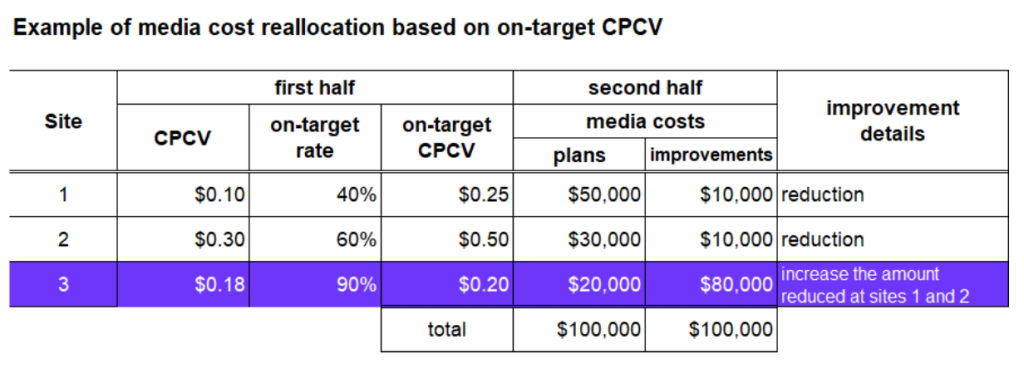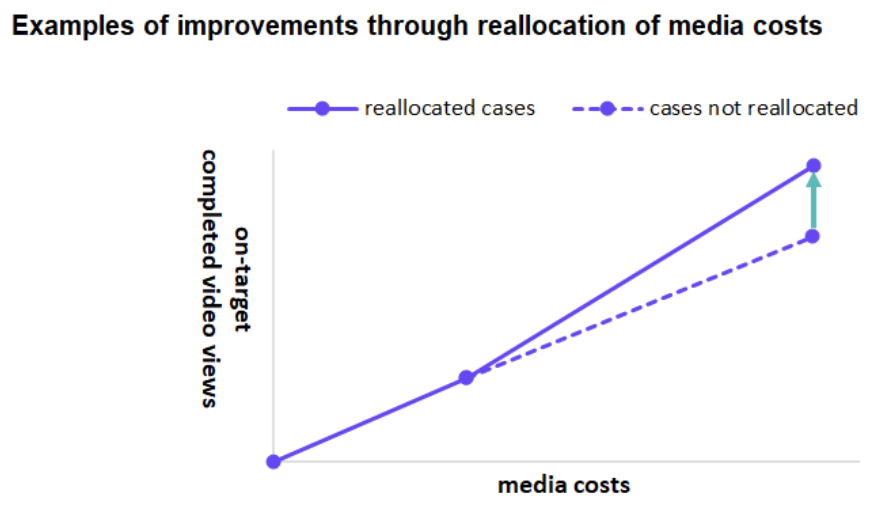
With third-party cookies disappearing, it is more important than ever to make sure that your ads are reaching the intended target audience.
In addition to utilizing cookieless delivery, it is more important than ever to be able to accurately measure ad performance to confirm you’re matching ads with the right audience. Nielsen recently conducted an analysis of 82 digital advertising campaigns across 15 brands to validate that delivering the right ad to the right audience will improve ROI, confirming that audience metrics are an early indicator of campaign performance.
For marketers concerned with decreased targeting accuracy due to a cookieless future, in-flight campaign optimizations are essential for improving ad delivery performance—and increasing ROI. And every optimization effort begins with accurate measurement.
With the increase of views from connected TVs in recent years, cost per completed view (CPCV) is quickly becoming a key video KPI for advertisers. While this new metric adds a layer of complexity onto campaign measurement—combining on-target rate1 and CPCV, which are typically measured separately—it also offers an additional opportunity for improving your campaigns. By calculating and optimizing the on-target CPCV2, marketers will be able to improve in both indicators.
As an example, consider a campaign targeting males 20-34 years old consisting of digital ads placed on three sites over an 8-week period. Suppose that after the first two weeks of the campaign, Site 3 has the lowest on-target CPCV. In terms of on-target CPCV, lower costs mean more efficient ads, so in-flight campaign optimizations should be focused on lowering total CPCV. In the case of our example, the entire on-target CPCV for the campaign can be lowered by reallocating all or part of the media spend from Sites 1 and 2 to Site 3 in the latter half of the campaign.

As a result, it is possible to get more targeted viewers to watch video ads within the same budget without increasing media costs. In this example, optimizing by looking only at the CPCV would reallocate the budget to Site 1 and miss the opportunity to get more of the target audience to fully view the site.

Knowing how to optimize your campaigns is only the first step. Actually implementing in-flight changes can be a challenge, as some platforms may not allow reallocation of budget after a campaign starts. But, even in campaigns that include sites for which budget cannot be changed after launch, it’s still possible to reallocate those campaign dollars to sites that are performing well, or disburse them among delivery settings, if multiple settings are being used within a single site.
In addition to reallocation of spend, advertisers can modify ad delivery conditions to maximize those dollars. For example, lack of third-party cookies may result in low on-target rates for some campaigns. By changing your data source in-flight, you can increase your targeting accuracy and reach more of your ideal audience.
To reach more of their target audience and drive higher ROI, it’s up to advertisers to harness their creativity, and their data, in order to make the most of their marketing spend. And while campaign optimization may not be a new concept, faced with a cookieless future, advertisers need to adjust how and what they are measuring to stay ahead of industry changes—and the competition
Notes
1On-target rate = Percentage of total impressions that reached the target audience.
2On-target CPCV = media cost / (number of completed video views x on-target rate)
Ex: If media cost is $10,000 and 10,000 targeted views are completed, on-target CPCV is $1.



